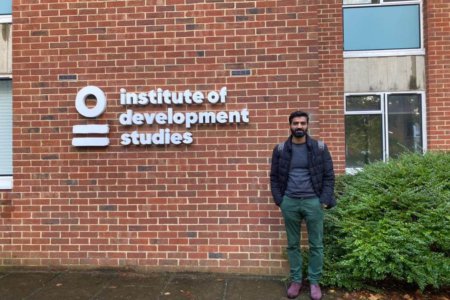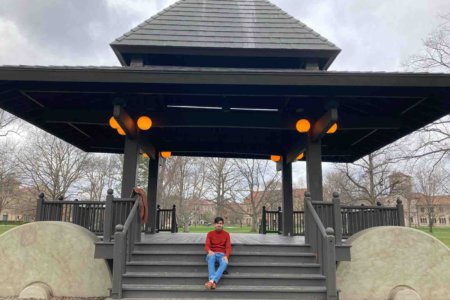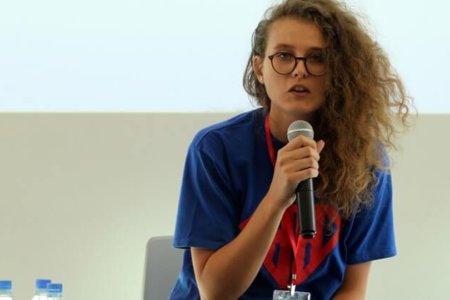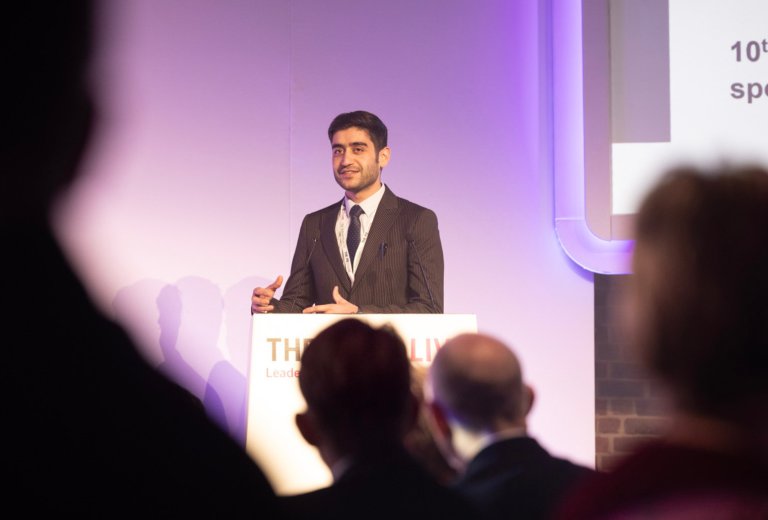
There are many struggles behind a persons’ success, and the same can be said about Sharif Safi’s journey to the UK. The Afghan is a Chevening scholar who is currently pursuing his master’s at London Metropolitan University.
The 27-year-old is an advocate for women’s rights in his native Afghanistan through a non-profit he founded; an international student ambassador with UK Council for International Student Affairs (UKCISA), and occasionally writes for international media outlets — no mean feat for a man born and raised in a conflict zone.
“I spent my childhood in war, just like millions of other Afghan children. My childhood and youth were both affected by the conflict,” he told Study International in an email interview.
Leaving his country to embark on a new journey across the pond was a bittersweet one.
Afghanistan has been mired in over 40 years of instability. After the Taliban takeover of the country last August, many lives were thrown out of kilter.
This sparked his interest to carve himself a career in diplomacy and conflict resolution. We speak to him to find out more about life in the UK as well as his future plans:
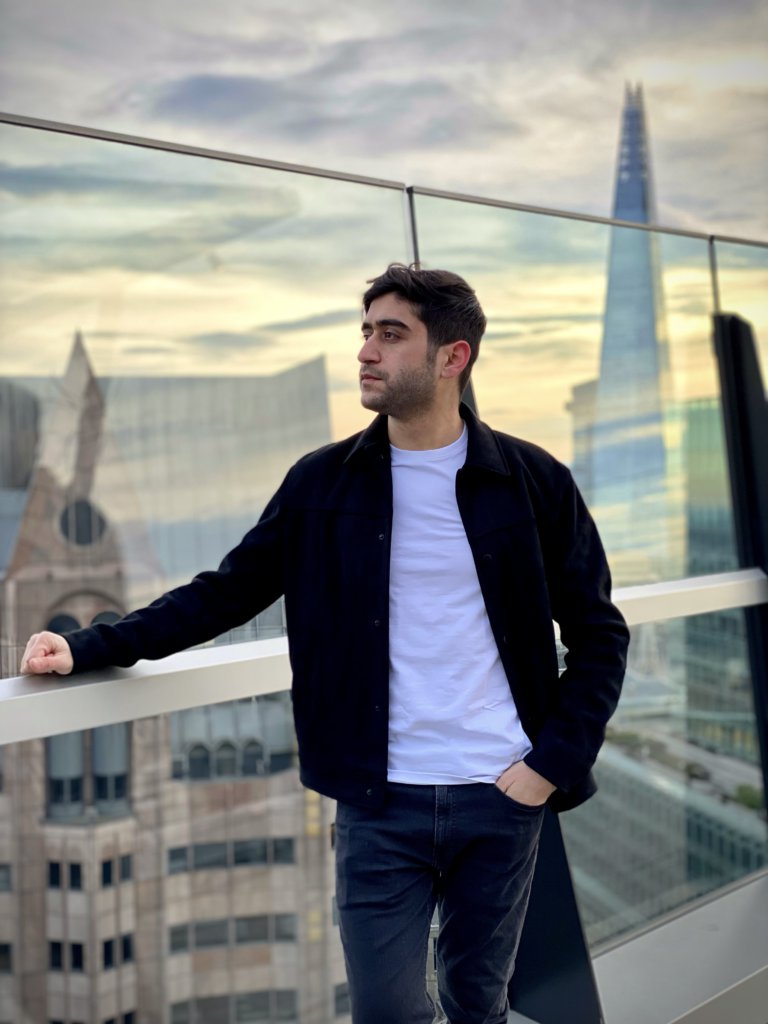
Before coming to London, Safi was leading his non-profit organisation, Mastooraat, in Afghanistan. Source: Sharif Safi
Hi Sharif. Can you tell us about yourself?
My name is Sharif Safi – from Afghanistan. I am currently a Chevening scholar studying MA Peace, Conflict and Diplomacy at London Metropolitan University.
Before coming to London, I was leading my non-profit organisation, Mastooraat, in Afghanistan. Through my organisation, we used to work for peacebuilding, women, art and youth. Through the Kabul Peace Forum, which I was the founder of, we used to highlight the voice and concerns of Afghan women, war victims, media activists and minorities over the Afghan peace process.
We were also advocating for preserving the rights of women, individual liberties and freedom of media if any potential peace agreement with the Taliban was to be reached over the Afghan peace process.
Before establishing my own organisation, I used to manage arguably one of the largest youth-focused projects from the US Embassy in Kabul for almost three years. Working in the Afghan civil society, both individually as an activist and in the organisations that I was working with, I had also closely worked with several other foreign embassies in Afghanistan, NATO SCR Office, international donor organisations and UN agencies in Afghanistan.
The core concept of my work, along with my team over the past years of my career in Afghanistan, has been to create and advocate for an environment where differences are appreciated, women’s rights are respected and individual liberties are acknowledged in Afghanistan.
I was also an activist in Afghanistan, and sometimes I would do freelance writing for international media outlets and institutions. I have written to Al Jazeera, Outriders, Sydasien Magazine, United States Institute of Peace, Central Asia Institute and many more.
What sparked your interest to pursue a MA in Peace, Conflict and Diplomacy from London Metropolitan University?
Both my personal and professional background, and my career aspirations.
I was born and raised in a conflict zone. I spent my childhood in war, just like millions of other Afghan children. My childhood and youth were both affected by the conflict.
This is one major reason why I always wanted to have a career in diplomacy and conflict resolution. I believe the world, more than ever, needs people who can solve differences and conflicts peacefully.
I chose this course exactly at London Metropolitan University because it’s the most relevant and comprehensive course I was looking for.
The modules, student experiences, and teachings by industry-specialists are all the features I considered. I found them all uniquely offered in this course at London Metropolitan University.
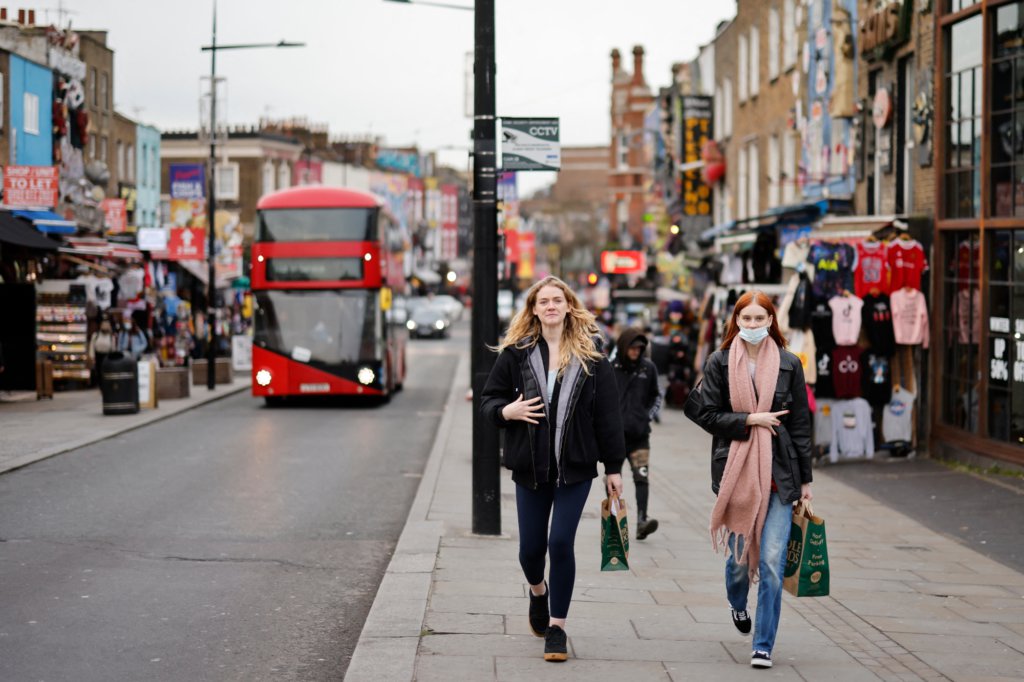
“London is beautiful – filled with both history and all the fancy things of the modern world,” said Safi. Source: Tolga Akmen/AFP
What has been the best part of your Chevening journey to date?
There are many positive things about my Chevening journey so far to tell. But arguably the best part has been meeting new people and making new friends from different countries with different fields of study.
Chevening Summit in March this year was definitely one of the highlights of my Chevening journey.
You left Afghanistan under challenging circumstances. How do you cope with the ordeal and focus on your studies at London Metropolitan University?
By the time I arrived in London, my feelings of excitement were completely overshadowed by the distress and trauma.
I felt more sorrow than excitement for my Chevening journey. That’d be a lie if I say I still don’t think and mourn for all the good things which are now lost in Afghanistan. It wasn’t the kind of journey I expected. It wasn’t the kind of leaving home as I expected.
Honestly, it has been extremely difficult the past months dealing with all the distress and in the meantime doing a one-year master’s in the UK which is so challenging even if you take it in a normal circumstance.
But I am glad that I have been fairly successful in it, however very difficult. I am happy that I am getting a world-class education, yet I am deeply worried as I follow the developments in Afghanistan.
As difficult as it has been, I have tried to keep my mental health and make sure I am doing well in my studies. Meditation, gym and giving some time for myself have definitely helped. Yet, that’d be a lie if I say I don’t worry about what’s happening in Afghanistan, every single day.
Can you tell us more about your role as an international student ambassador for UKCISA?
I was chosen as an International Student Ambassador with UKCISA through a merit-based application process. The programme chooses 10 international students from across the UK annually – and I am delighted to be one of them this year.
Our role as ambassadors entails a wide range of responsibilities and activities concerning international students and the education sector in the UK. Mainly, our job is to act as a bridge between international students and the policy-makers and business owners in the education sector so that the experience of international students is advanced.
We also share advice and tips about major issues related to international students, such as mental health, immigration, employability and many more.
What are your future career plans upon completing your degree in the UK?
I had to redraw my plans after the sad incidents which took place in Afghanistan last year. A lot of things are still in a limbo for me now, but I am hoping to start working with international organisations which practices NGO diplomacy and/or conflict resolution after I graduate. That’s my immediate future career plans for now.
What advice do you have for students looking to apply for a Chevening Scholarship or who plan on studying in the UK?
Do not hesitate, start preparing yourself now! Adapt discipline in your life, plan for success but in the meantime, be prepared for failure – because it’s from our failures that we learn the most.
Don’t be afraid of failures, if you fail, try again. It’s totally fine to keep failing again and again – but make sure you fail better every time you try. Do not get disappointed if you can’t make it in your first attempts, learn from it, move on and try again better – because at the end of the day all your hard work will pay off. Believe in it.
Chevening scholarship is one of the most prestigious scholarships in the world and obviously highly competitive – which requires hard work, discipline and dedication – but the good news is that it’s worth every bit of it.
Stop believing in luck and miracles when it comes to success, start believing in yourself and your abilities. While writing your applications, be real. Be clear. Be yourself.
Shifting gears: what’s it like living in London?
London is beautiful – filled with both history and all the fancy things of the modern world. It’s very fast-paced and a bit crowded – the central part. You have to be on the run, all the time. But I like it.
I especially like the architecture here, not only London but all over the UK. The old classic buildings, pathways and houses always catch my eyes whenever I walk across London or travel to other cities.
I also like the cultural diversity here – it’s so lovely to see people from different cultures have their ground here. The city has definitely space for everyone to grow professionally and enjoy life.








